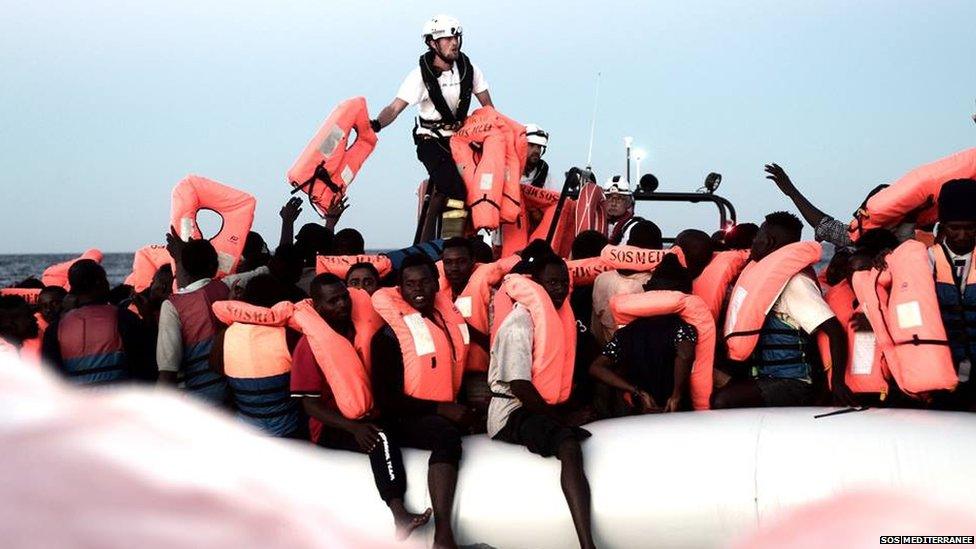Oliviero Toscani, Benetton's shock photographer, dies aged 82
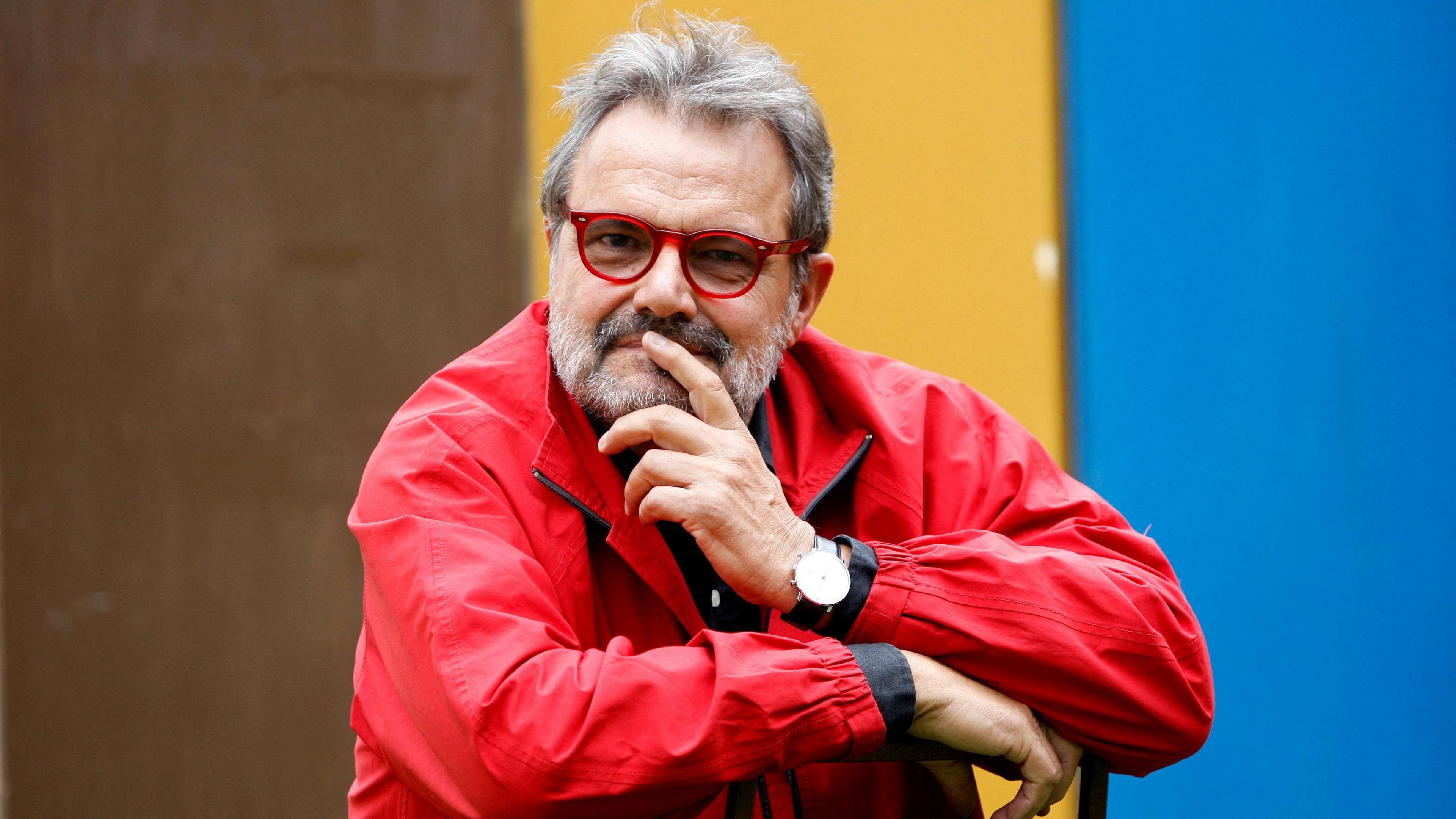
- Published
Fashion photographer Oliviero Toscani, known for his shock ad campaigns for Italian clothing brand Benetton, has died aged 82, his family has confirmed.
The brand's former art director revealed last year he had amyloidosis, a rare incurable condition that affects the body's vital organs and nerves.
"It is with great sorrow that we announce the news that today, 13 January 2025, our beloved Oliviero has embarked on his next journey," Toscani's wife Kirsti said in a post on Instagram.
Toscani was admitted to hospital on Friday in Cecina, near his Tuscan country home, in a serious condition.
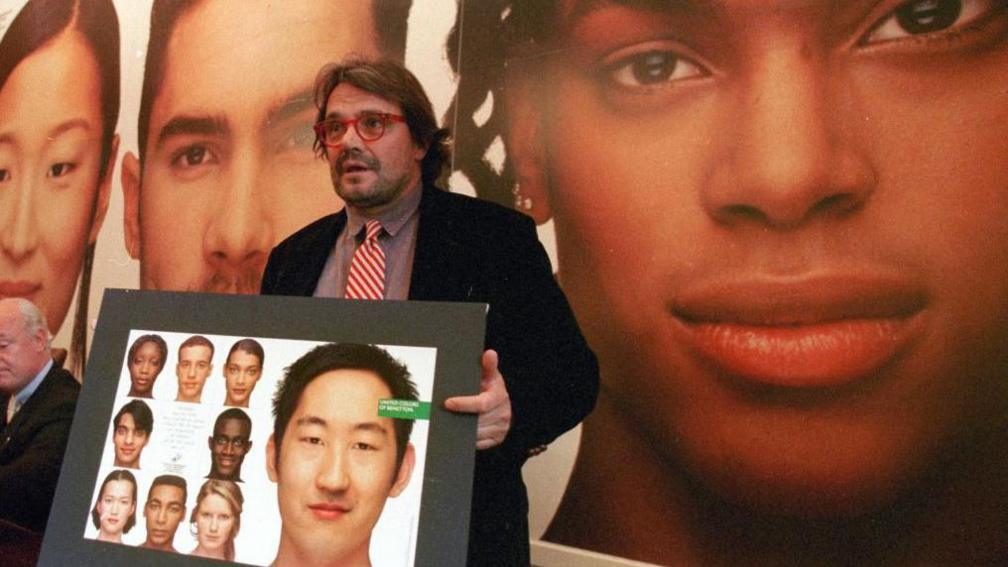
Toscani displays the group's new international advertising campaign inspired by the 50th anniversary of the UN declaration of universal human rights
In an interview with Italian newspaper Corriere della Sera last year he said he had unintentionally lost 40kg (88lb) in weight.
"I don't know how long I have left to live, but I'm not interested in living like this anyway," he added.
His work drew attention to social themes, such as the Aids pandemic, racism, war and the death penalty.
Paying tribute to his work, Benetton released a photograph he had taken for the brand in 1989.
"In order to explain certain things, words simply don't suffice. You taught us that," a spokesperson said on Monday.
"Farewell Oliviero. Keep on dreaming."
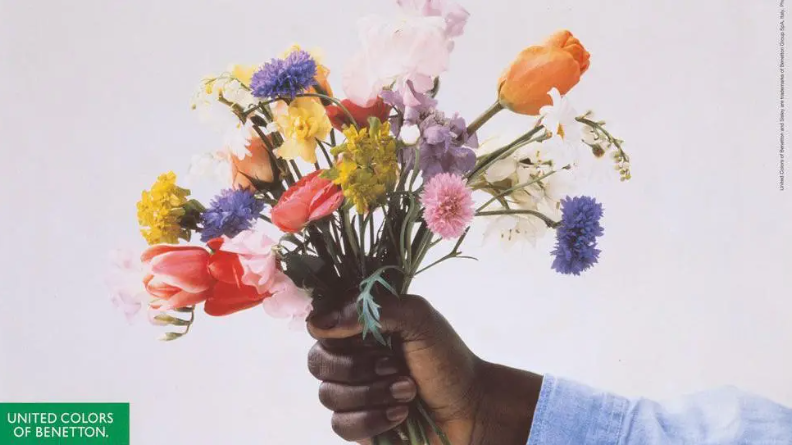
A photo that Toscani took in 1989 for Benetton has been released in tribute to him
Born on 28 February 1942 in Milan, Toscani was the son of a well-known Corriere photographer and attended art school in Zurich.
Throughout his career, he worked for leading fashion magazines including Vogue and GQ and helped to launch the career of model Monica Bellucci.
He photographed cultural icons such as Andy Warhol, John Lennon and Federico Fellini.
But it was during his tenure as director at Benetton, a position he held for 18 years, that saw him achieve world recognition.
His use of models of all races became the label's calling card and popularised the "United Colours of Benetton" logo - but his provocative photos stoked controversy.
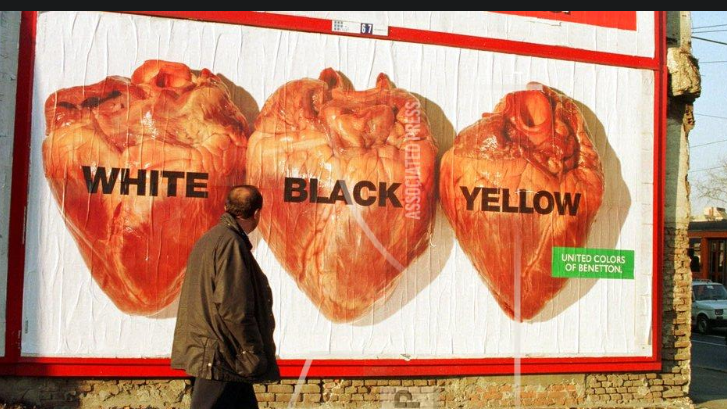
Images of the blood-drenched clothes of a soldier killed in Bosnia were featured on Benetton billboards around the world.
His graphic use of a photo depicting David Kirby, a man dying of Aids, also prompted a boycott of the brand.
Three identical human hearts labelled black, white and yellow hinted at the racism in fashion, while another of his adverts - featuring a priest and nun kissing - was also eventually banned.
He parted company with the brand in 2000 following disputes over his last campaign, which featured images of death row prisoners, captioned "sentenced to death".
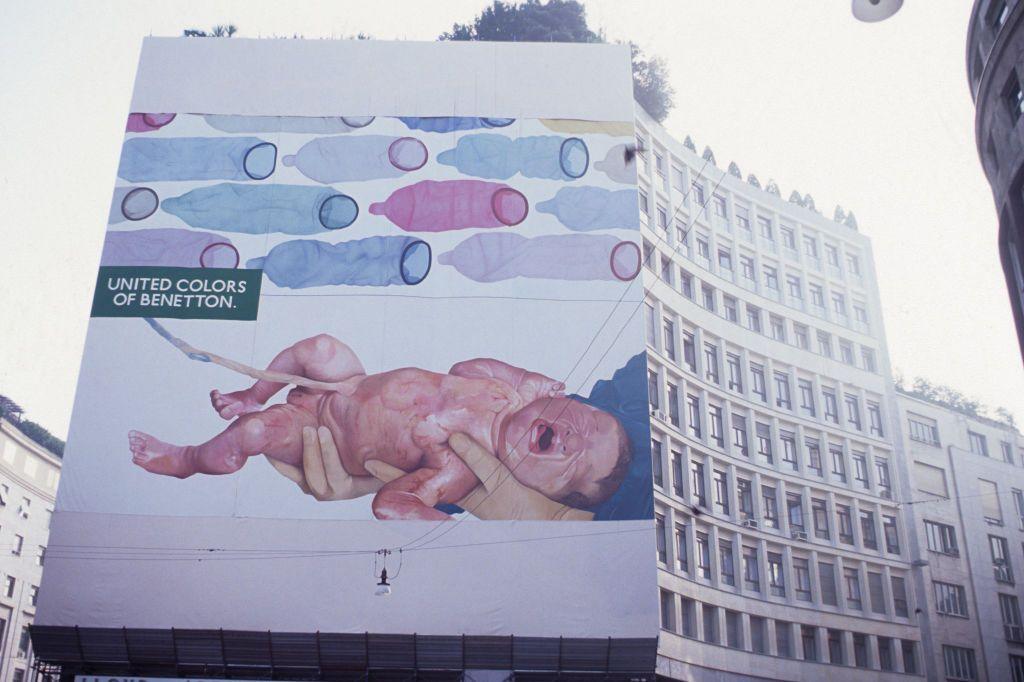
He has said that his campaigns, which touched on subjects such as human rights, religion and racism, were designed to raise awareness of certain issues.
"I exploit clothing to raise social issues," Toscani told Reuters in an interview at the time, as debate erupted over whether the campaign had gone too far.
"Traditional advertising says if you buy a certain product, you will be beautiful, sexually powerful, successful. All that doesn't really exist," he said.
In 2007, his photo of French model Isabelle Caro for a fashion label's anti-anorexia campaign made headlines.
Her gaunt face and emaciated body, ravaged by the eating disorder, was featured on billboards and in newspapers during Milan fashion week. The campaign coincided with the rise in concern about the use of excessively thin models on the catwalk.
The image, shot for fashion house Nolita, was banned in several countries including Italy, but provoked fierce debate online after going viral.
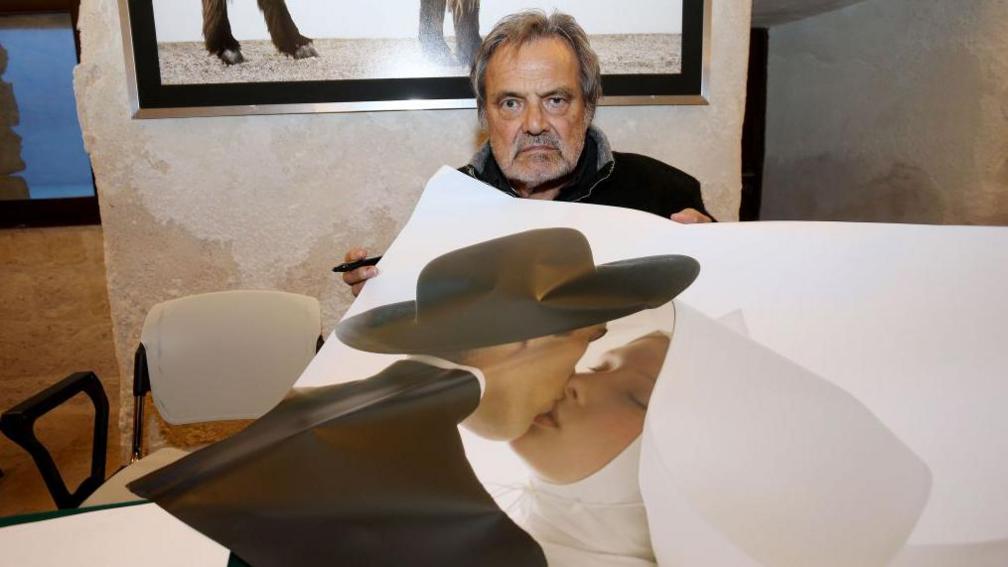
Toscani with a copy of his photograph of a priest and a nun kissing
Toscani resumed working for Benetton in 2017, but three years later, the group cut ties with him after he played down the significance of the Morandi Bridge disaster which killed 43 people.
He is survived by his wife and three children Rocco, Lola and Ali.
Related topics
- Published20 June 2018
